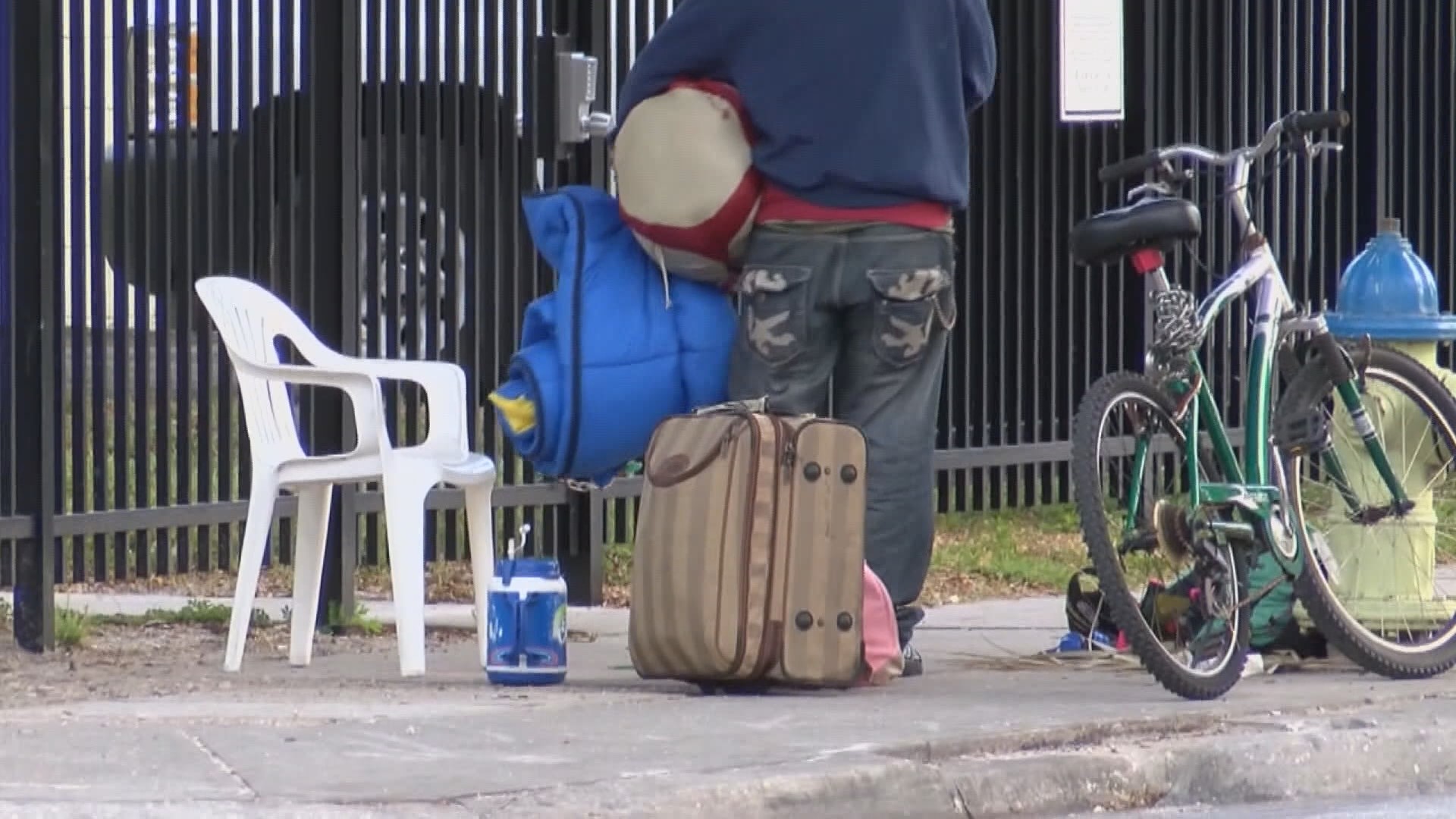CLEARWATER, Fla. — Leaders of one of Tampa Bay's largest organizations serving the homeless have gathered to discuss the growing demand for resources and House Bill 1365. The bill, which is expected to be signed into law by Governor DeSantis soon, makes it illegal for people to sleep and camp in public places.
On Thursday and Friday, Catholic Charities Diocese of St. Petersburg hosted a meeting with local leaders to discuss how to tackle the issues at hand, with the goal of impacting federal policy and educating local leaders on how to engage with their elected officials.
Maggie Rogers is the Executive Director of Catholic Charities Diocese of St. Petersburg, which oversees Pinellas Hope and eight other area shelters.
"I do think that the need for us will become greater. I do foresee that we will have to increase our bed capacity," said Rogers on the potential impact of HB 1365.
Pinellas Hope can house 230 people. Right now, it is full, as it is most days. "We're continuously, every week, filling those beds," said Rogers.
Pinellas Hope Shelter Coordinator Jeff Plooster said he usually has a running list of more than 100 people seeking their services. "We feel like it's increased, and the demographic [we're seeing] the most is the elderly folks who are on fixed income who are getting priced out of their apartments," said Plooster.
That includes 68-year-old Sandra Silvey. She said her husband lost his job five years ago, and then they lost their mobile home.
"I never, ever in my wildest dreams thought that my golden years would be outside," said Silvey. "People need to be aware, because it can happen to anybody."
HB 1365, "An act relating to unauthorized public camping and public sleeping", allows for communities to create designated spaces for sleeping and camping in public, with its sponsors arguing it will connect more people with resources.
However, Maggie Rogers believes that's only feasible with additional financial support and careful planning.
"There's absolutely no way that we could just consider opening up a piece of land and putting tents on there and thinking that will end homelessness," said Rogers. "It's really about the wraparound services, the collaborative partnerships in the community, and everyone working together."
She said that includes law enforcement.
"No one is interested in criminalizing the homeless. They also want a solution. They also want to be helpful. I think they're looking for an opportunity to engage with the homeless and how can they help the homeless move to these shelters," said Rogers.
It's estimated that 30,000 Floridians don't have a home, and about half of them don't have shelter.
If signed by Governor DeSantis, HB 1365 will take effect on October 1.

